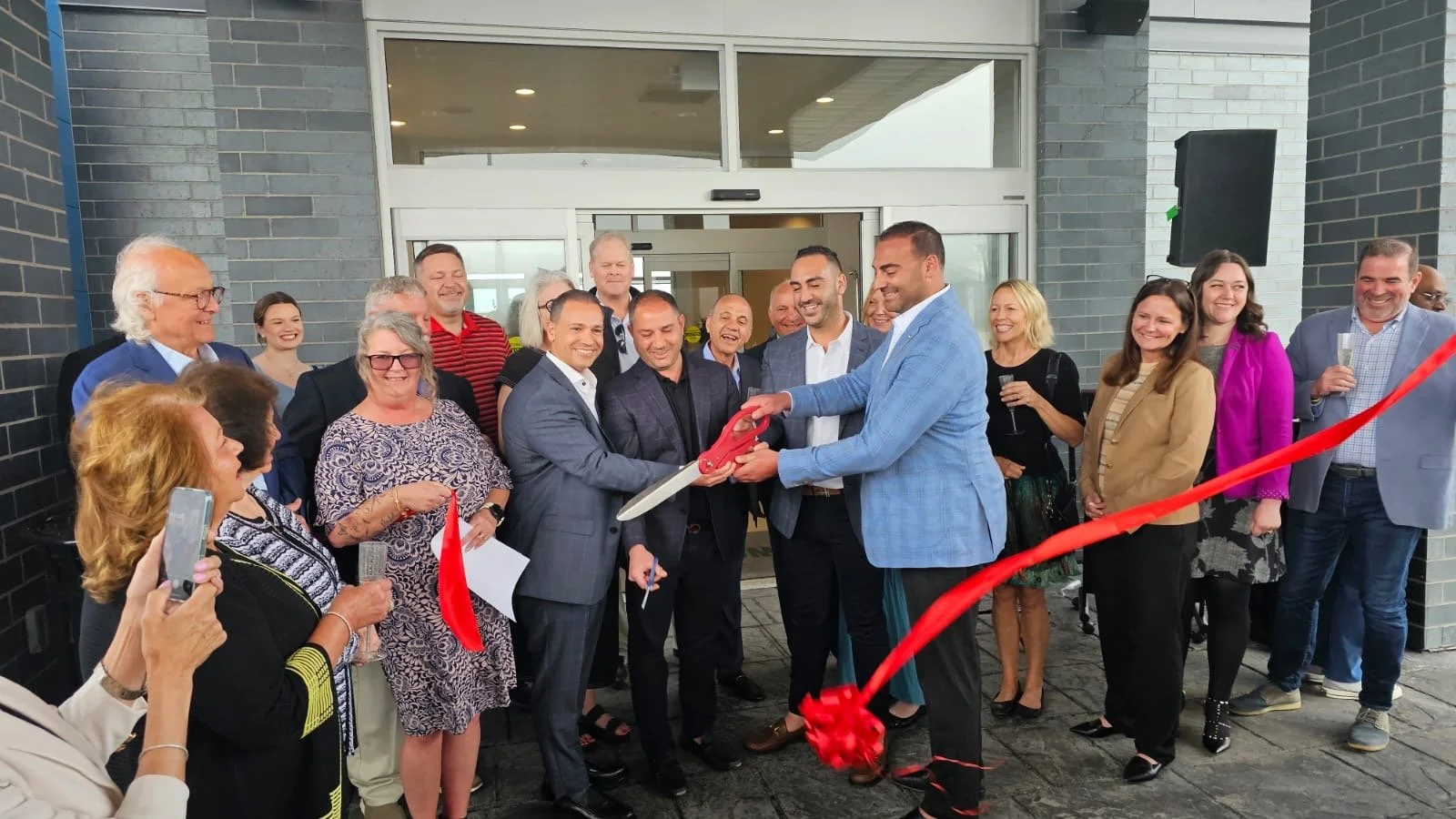Chaldean Hoteliers Capture Michigan’s Tourism Trend
By Paul Natinsky
In many ways, Northern Hotels Group’s story is a typical Chaldean business success tale: Work hard at a business, gain professional skills and education, bring those attributes back, and grow the business.
George Jappaya, who was a hotel proprietor in Iraq, took a job as a janitor upon arriving in the United States because it was one of few jobs available to a non-English-speaking immigrant. Soon he bought a liquor store and then a hotel.
In 1991, George bought a Knight’s Inn in Howell. He then bought a neighboring 106-room Ramada Inn, and soon several other properties.
The family’s hospitality-centered entrepreneurship expanded from there as sons Kevin and Shawn earned degrees, embarked upon professional careers and returned to the business in 2011. It was then that they greatly expanded it through a partnership with the Foumia family. Patrick Foumia and the Jappaya brothers are first cousins.
This next generation of hoteliers brought the muscle of their complimentary careers—Kevin in real estate, Shawn an attorney and executive with the Northern Hotels Group and Patrick, also an executive with the hotel group and deeply enmeshed in the Michigan tourism and hospitality industry.
The root of expertise and easy relatability to the tourism industry and its veteran denizens comes from the partner’s experience as boys growing up working hands-on in their father’s business.
LISTEN TO THIS STORY!
CN Audio Stories are made possible with generous support from the Chaldean American Chamber of Commerce
Kevin, Patrick and Shawn have fostered relationships with leading hotel brands over the years, including Marriott, Hilton and Hyatt, among others. The trio’s expertise combined with relentless phone calls, conference and convention attendance translate into executives at the major hotel chains taking their calls.
“They know us really well. They trust us,” says Patrick. “They like the results that we give from the properties we operate.”
The journey has been challenging. Kevin says working with organizations like Hilton and Marriott is not easy for immigrant communities. “It’s just like any other Chaldean-owned business, you work really hard and you are going to be successful. That’s the mantra of our community.”
Kevin says he and his partners typically find sites, do the research and present opportunities to the hotel chains, who often accept the proposals. In many cases Northern Hotel Group then becomes the franchisee in the project, gaining the marketing muscle and logistic support of the large chains in exchange.
Kevin says the group also identifies existing, operational properties and incorporates them into the portfolio. “We will buy them if we feel they have value or that we can operate them better than the previous owner.”
The 2011 convergence of the Jappayas and the Foumias incorporates about a dozen hotels in locations throughout Michigan, including Sault St. Marie, St. Ignace, Petoskey, Houghton Lake, Flint, Southfield, Taylor and Howell.
The State of the Game in Michigan
Hard work and earned expertise notwithstanding, travel industry owners and operators have faced several periods of uncertainty in the past couple of decades. The 2008 economic crisis was followed by the COVID pandemic and now emerges an uncertain economic environment amid constantly changing policy on tariffs.
“We’re bullish on Michigan and the continued growth,” says Kevin.
“We’re mainly a drive-to destination. I feel like inbound travel within the state of Michigan is going to flourish. People want to get away, especially when school gets out,” said Patrick, who sits on the Sault St. Marie Visitors Bureau. He said the talk in Michigan tourism circles currently focuses on whether rates will have to be adjusted downward to incentivize travelers in an uncertain economy and, of course, the effect Michigan’s unpredictable weather will have on travel bookings.
Despite these pain points, a post-COVID boom in local travel has elevated Michigan’s status as a go-to destination, particularly the Upper Peninsula.
“Since COVID, the Upper Peninsula has really flourished. People have been traveling to Marquette, Picture Rock, Tahquamenon Falls, the Soo Locks—coming across the bridge to go to Mackinac Island,” said Foumia.
Foumia says the travel industry will face the same indirect economic pressures that all businesses are preparing to endure. But that doesn’t sour him on the big picture.
According to numbers compiled by Tourism Economics, visitor volume in Michigan has traversed a steady post-pandemic path of recovery. In the year immediately preceding COVID, Michigan saw 125.6 million visitors. After a pandemic dip of -15.7 percent (105.9 million) during 2020, Michigan saw three straight years of growth with increases of 10.8 percent in 2021, 6.5 in 2022 and 2.6 in 2023 (the last year for which the group’s numbers are available). Total visitor volume for 2023 was 128.3, exceeding the 2019 number.
Tourism economic numbers follow a similar path. Visitors spent about $2 billion more in 2024 than they did in ’23, reported MLive in an October 2024 story. MLive reported that, “Spending was driven by increased prices in the lodging and food categories…Collectively, tourists spent $29.3 billion in Michigan last year.”
So Michigan is trending up and parts of the state are enjoying an elevated profile. The popularity of local travel combined with economic trends that support it seem durable, even while the nation’s economic environment remains turbulent.
For the Northern Hotels Group, the immediate future looks bright. Patrick Foumia is 38, Kevin Jappaya, 44, and Shawn Jappaya, 45. It’s too early to tell if the next generation will continue the journey in Michigan’s travel industry. Time will tell.


